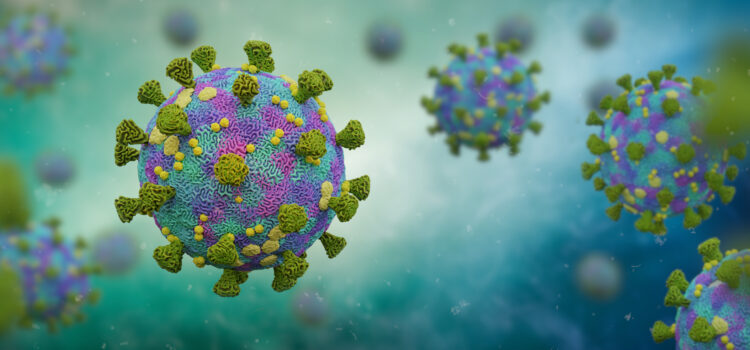
Today, the Kern County Public Health Services Department added 13 new deaths to the COVID-19 dashboard, bringing the total amount of COVID related deaths in Kern County to 2,294.
“Current modeling from the state does not project any upcoming surges as we begin to move closer to an endemic stage of this pandemic,” stated Michelle Corson, Program Manager/Public Relations Officer for Public Health, when asked if community members expect another surge in COVID cases due to spring break and an increase in travel. “However, it remains important that we continue to adhere to all CDC and state guidance to protect ourselves, especially when traveling.”
Corson continued by saying: “Also, families have many tools to access to increase layers of protection when needed such as masking in high-risk settings, washing hands often, staying home when sick and gathering outdoors when possible.”
The California Department of Public Health has recently updated their travel guidelines to help prevent the spread of COVID-19:
- All travelers arriving or returning to California from other states or countries should follow CDC travel guidance.
- All travelers who test positive or develop symptoms of COVID-19 should isolate and follow public health recommendations.
- Delay International travel until you’re up to date on your vaccines.
- If you are not up to date on your vaccines, but choose to travel domestically (within the U.S.), test within 3 days before and 3–5 days after travel. If you had a confirmed COVID-19 infection in the past 90 days (approximately 3 months), you do not need to test before or after traveling or stay home after you returned from travel.
- Wear a mask on public transportation (regardless of your vaccination status) as masks are required on public transportation (including airports, planes, trains, buses, stations, etc.) into, within, or out of the U.S.
In addition to these health tips, the COVID-19 vaccine continues to be an asset towards ending the pandemic. Vaccines prevent serious illness, save lives, and reduce further spread of COVID-19. As more people are vaccinated, the virus is less likely to spread, mutate, and potentially become even more dangerous.
On Tuesday, the U.S. Food and Drug Administration (FDA) announced that they would be authorizing a second booster dose of COVID-19 vaccines for older and immunocompromised individuals.
“Current evidence suggests some waning of protection over time against serious outcomes from COVID-19 in older and immunocompromised individuals. Based on an analysis of emerging data, a second booster dose of either the Pfizer-BioNTech or Moderna COVID-19 vaccine could help increase protection levels for these higher-risk individuals,” said Peter Marks, M.D., Ph.D., director of the FDA’s Center for Biologics Evaluation and Research. “Additionally, the data show that an initial booster dose is critical in helping to protect all adults from the potentially severe outcomes of COVID-19. So, those who have not received their initial booster dose are strongly encouraged to do so.”
A press release posted by the FDA also states that: “This action will now make a second booster dose of these vaccines available to other populations at higher risk for severe disease, hospitalization and death. Emerging evidence suggests that a second booster dose of an mRNA COVID-19 vaccine improves protection against severe COVID-19 and is not associated with new safety concerns.”
The FDA modified the emergency use authorizations as follows:
- A second booster dose of the Pfizer-BioNTech COVID-19 Vaccine or Moderna COVID-19 Vaccine may be administered to individuals 50 years of age and older at least four months after receipt of a first booster dose of any authorized or approved COVID-19 vaccine.
- A second booster dose of the Pfizer-BioNTech COVID-19 Vaccine may be administered to individuals 12 years of age and older with certain kinds of immunocompromise at least four months after receipt of a first booster dose of any authorized or approved COVID-19 vaccine. These are people who have undergone solid organ transplantation, or who are living with conditions that are considered to have an equivalent level of immunocompromise.
- A second booster dose of the Moderna COVID-19 Vaccine may be administered at least four months after the first booster dose of any authorized or approved COVID-19 vaccine to individuals 18 years of age and older with the same certain kinds of immunocompromise.
Wednesday, the California Health and Human Services Agency Secretary Dr. Mark Ghaly, and Director of the California Department of Public Health and State Public Health Officer Dr. Tomás J. Aragón, issued a joint statement on the Western States Scientific Safety Review Workgroup’s support for expanded eligibility of second booster doses of the Moderna and Pfizer-BioNTech mRNA COVID-19 vaccines.
“Getting this additional booster is the best way to strengthen your protection against COVID-19. The additional Pfizer or Moderna booster dose for anyone who received a Johnson & Johnson booster, certain immunocompromised individuals, and people aged 50 and up will help protect our communities and continue to move the state forward. As outlined in Governor Newsom’s SMARTER Plan, California has maintained the operational readiness and flexibility to distribute and administer vaccines and boosters. Therefore, the state is prepared to immediately distribute and administer additional boosters to eligible Californians.”
Kern County Public Health will be administering free COVID-19 vaccines at the following locations:
- April 2, 2022
- Beale Park 9 a.m. to 1 p.m.
- 500 Oleander Ave, Bakersfield, CA, 93304
- Arvin’s Veterans Hall 12 p.m. to 5 p.m.
- 414 4th Ave, Arvin, CA, 93203
- Beale Park 9 a.m. to 1 p.m.